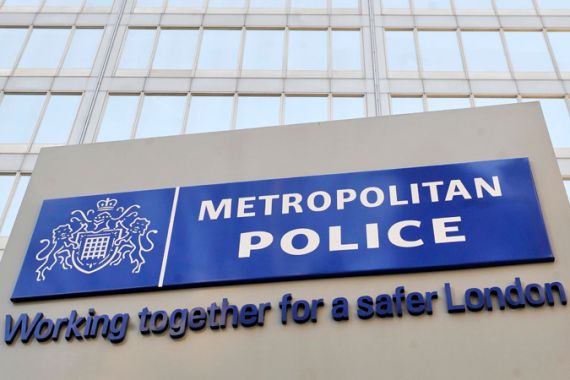Babar Ahmad case tramples on law and fair play
It is time to have a full public inquiry about the handling of evidence by the CPS on Babar Ahmad’s case, writes Bari.

London, United Kingdom – No legal case in recent times has created as many strong feelings and controversy in Britain as that of Babar Ahmad.
Along with four other British Muslim terror suspects, Ahmad has just lost a battle against extradition from Britain to the United States in the European Court of Human Rights. He is accused of running a terrorist website.
Whilst some of our senior politicians have expressed their delight at this verdict, this case raises serious questions about the fairness of justice in Britain. It also shines an uncomfortable light on the role of our police and Crown Prosecution Service (CPS), and the imbalance against Britain in its extradition treaty with the US.
|
UK man fights case against US extradition |
Babar Ahmad is the longest serving British detainee-without-charge, having been held in a high-security prison for eight years. If this is not a violation of human rights, then what is?
Ahmad’s case is a tragedy in itself. In December 2003, he was arrested at his London home during an anti-terror operation, sustaining over 73 forensically-recorded injuries, including bleeding in his ears and urine, before reaching the police station. He was released without charge six days later. The Metropolitan Police later paid him £60,000 in compensation.
In August 2004, he was re-arrested and imprisoned, pending an extradition request from the US under the one-sided “2003 US-UK Extradition Treaty”, part of the Extradition Act 2003. The police sent all the evidence against Ahmad to the US without giving the CPS an opportunity to consider any of it.
There is a separate deep concern about how the case has been handled by the CPS itself, especially considering the fact that it admitted in November 2011 that it had not reviewed a “significant amount” of evidence seized from Ahmad’s home.
Why did the US want him extradited to the US? It was on the grounds that he supported “terrorism” in the 1990s, which Ahmad has consistently denied. His legal team have all along been pleading that he be tried in the UK – where the alleged crimes took place and the evidence was obtained. Only a few days ago, in a BBC interview, he had asked for a trial here.
Political and legal saga
The Babar Ahmad saga is as much political as it is legal. I am neither a lawyer, nor a politician, but one does not have to be an expert in these fields to know that law is for human beings, not the other way round.
The extent of feelings in both the Muslim and wider communities was highlighted by an e-petition late last year which generated almost 150,000 signatures, asking for Ahmad to be tried in the UK. A report released by the House of Parliament Joint Committee on Human Rights (JCHR) last year also urged the UK government to change the law so that Ahmad’s perpetual threat of extradition could be ended without further delay. Furthermore, numerous cross-party MPs have been asking for a change in our extradition treaty with the US.
|
“Ahmad’s legal team have all along been pleading that he be tried in the UK – where the alleged crimes took place and the evidence was obtained.” |
It is not so much Babar Ahmad’s guilt or innocence as his right to a trial within the UK that is at question – something the controversial US-UK extradition treaty of 2003 does not permit. Ahmad’s extradition now looks highly likely to proceed – unless the British government intervenes.
According to the UN Declaration on Human Rights, Article 10: “Everyone is entitled in full equality to a fair and public hearing by an independent and impartial tribunal, in the determination of his rights and obligations and of any criminal charge against him.”
It appears, however, that this is going to be denied if there is collective failure of political will by our government: a government which should be protecting the legal rights of one of its citizens who has already been held for the past eight years.
At a time when British public have less trust in our politics and politicians, it is important that their voice is heard. It is time we have a full public inquiry about the handling of evidence by our CPS on Babar Ahmad’s case.
Dr Muhammad Abdul Bari is a parenting consultant (www.amanaparenting.com). He is a founding member of The East London Communities Organisation (TELCO), Chairman of the East London Mosque Trust, and former Secretary General of the Muslim Council of Britain (2006-10).
